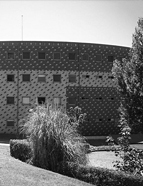

As far as Verney was concerned, the disheartening ignorance of history among jurists was abhorrent. Many were considered great legal scholars yet, aloof from the pure text they studied, they were "so crude that they seemed to have just arrived from Paraguay or the Cape of Good Hope." Indeed, the history of Rome proved illuminating for the correct understanding of ius romanum, and Verney went on to become a herald of the essential value of explaining history to grasp the meaning of law. Upon hearing a jurist claim to be unaware of civil history and a theologian who was surprised by church history, he immediately concluded that neither understood law or theology, as history constituted "a main part of these two faculties: without which, a man cannot understand them." Such was Verney's scathing judgement, which did not omit the need for jurists to devote themselves to the study of national law and its history as part of a comprehensive education. Thus, a true legal scholar would have knowledge of a multitude of subjects which, despite the clear privilege granted to the historical strand, would include areas as diverse as natural law and international law, rhetoric, canons, theology, and the legislations of foreign countries.
Through bouts of nonconformity, Verney's spirit of cultural mission eventually bore fruit. A new legal mindset was installed as of 1772, with the Pombaline Statutes of the University of Coimbra. This remarkable legal document completed an evolutionary process initiated in 1770 by the Junta de Providência Literária [Literary Providence Board], which had been tasked with examining the causes of the University's ruinous decline and proposing solutions to address them. The results achieved by this commission were presented in the Compêndio Histórico do Estado da Universidade de Coimbra [Historical Compendium of the State of the University of Coimbra], which revisited the diatribes and suggestions from the work of Friar Barbadinho. Indeed, following in Verney's footsteps, the famous Historical Compendium reaffirmed the alliance that should be intimately established between law and history, with the latter preceding and perpetually accompanying legal studies. Having raised the soul of jurisprudence, history became an interpretative paradigm, like the golden hook used to seek the true understanding of laws, or the brightest torch that illuminated the often obscure meaning of norms.
